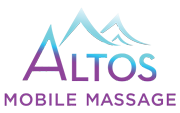As a small business owner, I wear a lot of hats: marketing, business development, accountant, CEO, secretary, etc. As with many small business owners or anyone in the workforce for that matter, I find myself living in that fight or flight mode—a lot! As a matter of fact I am willing to bet that many of us have become what I like to refer to as adrenaline junkies. We just don’t feel like our day is going in the right direction, i.e. being productive, unless we are pumped up and going 90 miles a minute and feeling like we have at least 5 things we should be doing at the moment. Many of us think it feels normal to feel stressed MOST of the time and to only feel relaxed sporadically– like when we go on vacation or we’ve just completed a 2 hour workout and we have “pushed all the stress out”. Whether self-induced or the perceived pressure is induced by bosses, customers, family members, or someone else outside of ourselves, the feeling is real and it triggers our sympathetic nervous system into a habitual over-reactive state.
When we live in a habitual state of overreaction and our sympathetic nervous system is activated, our bodies are hardwired to release hormones and other chemicals in our system that are really designed for use in those rare occasions when danger is eminent—a hungry looking mountain lion is on the trail you are hiking on, or the dog wagged his tail anxious for some attention, tipped over a candle and caught the couch cushion on fire….you get the picture. When we live in this over-reactive state day in and day out, there is a price we pay in our well-being and overall physical health. Adrenaline is released which then leads to elevated blood pressure, rapid shallow breathing, indigestion, and high blood sugar. Adrenaline causes our platelets to be stickier in the blood—so when you are under stress, those white blood cells meant to fight off disease, can’t move as easily in through the blood stream. In addition to the adrenaline, cortisol is released by the adrenal cortex, which in turn, triggers the body to produce and release more glucose and fats into the blood stream leading to weight gain, inflammation and atherosclerosis (heart disease).
The truth of the matter, is that we are doing ourselves, our families and our business partners and colleagues a disservice by living in this mode all the time. We tend to not sleep well, which can make us irritable, less alert or hyper-alert and therefore over-reactive and less productive. What can we do about it? For one thing, we can do more than just shrug our shoulders and accept it as a part of the modern world. We can step back and use some old world techniques that have been tried and true for centuries. We can make different choices.
In reality, that calm and relaxed person still resides inside of you. He/she would love it if you searched out and actually found that being and started nourishing him/her. Basics, like taking a 5-10 min break between meetings at work—I recommend building them into your schedule by blocking them on your calendar so that others will not book that time for another meeting, and or setting an alarm on your computer to remind you to stop working for a few minutes and take a break. Both of these tools will help you stay true to yourself as well. During that break, stretch; just stand up and reach for the sun, then drop from the waste and let your head hang using gravity to stretch the muscles at the back of the neck and upper spine while your hands hang limp to the floor. Reach your arms out side to side and stretch as far as you can. These and many other stretches you can do in your office or cubicle that will give relief and don’t require a lot of room. If you can, build in a 10-20 minute meditation session in your office or book a small conference room Close the door—with a Do Not Disturb sign on it. Sit at your desk or on the floor with your back against the wall and eyes closed and just focus on your breathing, In/out….in/out….in/out….slow deep diaphragmatic breaths—they are magic at releasing stress and ground you into the moment of now. Stopping to relax consciously several times a day will eventually turn into a habit that will then extend to those moments when something sets you off—a boss comes in and chastises you for not making your numbers, or your child gets hurt on the playground and you get the emergency call to pick her up from school…..you will have these tools in your toolbox to just stop for a second and ask yourself, “Is this a life threatening situation?”—No? Then you can deep breathe for a moment and get yourself in a more relaxed state. You will find you are more rational and less reactive.
Systematically building in ways to relax into your day are important tools for maintaining a sense of well-being and healthy longevity. Using these tools, you may find, will pay off in ways that you hadn’t expected: better sleep, better mood, weight loss, better problem solving, and an overall sense of feeling happier.








